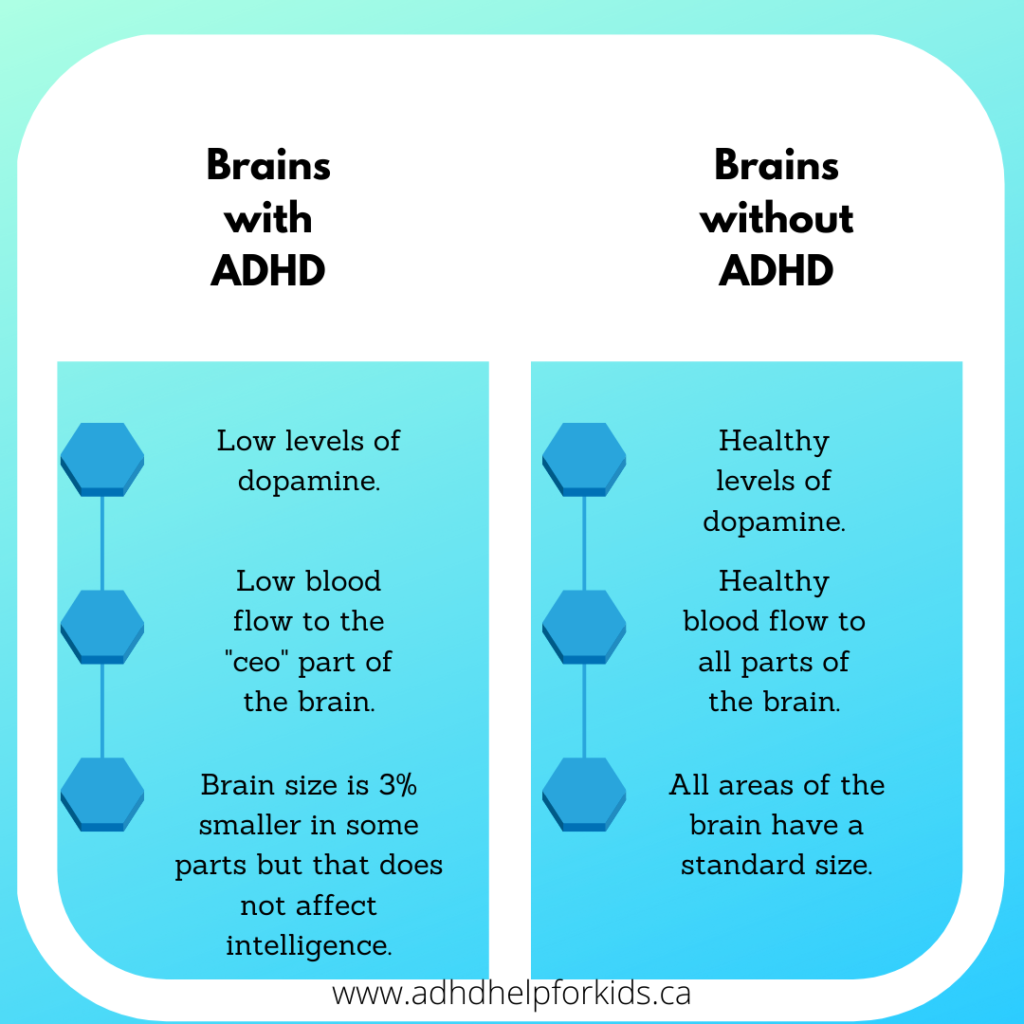By Fatima Malik –
From a tax credit standpoint, ADHD (attention deficit hyperactivity disorder) is considered a disability depending on how severe the impairment is.
Is ADHD a challenge? YES, but is labelling it a disability helping you or your child overcome the complications associated with its existence in your life? NO. Words (and their associated meanings) significantly impact our psychology and how we perceive ourselves to be.
You are who you think you are, and therefore, your child is who you tell them they are. Since your child doesn’t have their identity figured out yet and is dependent on you to guide them, everything you tell them about themselves matters.
Below you’ll find an image explaining a few differences between brains with ADHD and without. This will help us to get a better idea of what they are dealing with.
Who can get ADHD?
Anyone. Anyone can get ADHD. ADHD is a neurodevelopmental disorder, and anyone from any background, country, race and gender can have it.
ADHD is wildly misunderstood, making it hard for children struggling with the symptoms to deal with people of influence in their lives. For example, when their parents and teachers tell them that they’ve failed to ‘apply themselves,’ they are treating it as a personality trait. Which it is not.
ADHD is not a personality trait. ADHD is a medical condition that has been scientifically proven to have varied effects on the brain.
ADHD has a strong genetic component, meaning that the likelihood of it running in families is high.
Let’s look at some differences in the brain with and without ADHD:

- Dopamine levels determine how we feel pleasure. It plays an integral part in our ability to think and plan. So kids with low dopamine levels have trouble finding things interesting.
- The ‘CEO’ part of the brain is the prefrontal cortex. It is responsible for the executive control of the brain and for orchestrating all aspects of brain function.
- Basal ganglia are the part of the brain that regulate emotion, voluntary movement and cognition. Previous research found that regions within the ganglia (caudate and putamen) are smaller in people with ADHD.
ADHD affects every aspect of a person’s mental processes that involve their mental attention and focus. It affects impulse control and emotional reactiveness. Active listening and understanding the sequence of steps/events that can lead to the desired outcome are also affected.
The earlier ADHD is diagnosed, the better, and for this purpose, it is best to bring your child to a healthcare professional to assess their symptoms.
The stats suggest that ADHD is the most underdiagnosed and misunderstood condition affecting children (and adults). 80% of school-age children diagnosed will struggle with the symptoms into adolescence, and 60% will maintain their symptoms into adulthood.
Scary? Yes, it is. But being afraid of it or making fear-based decisions about it will not be healthy for you or your child. If you believe that ADHD is a shortcoming, then your child will grow up with that belief, feeling like they are somehow ‘lesser than’. That is, however, not the case at all. ADHD is a condition that needs treatment along with your love and empathy, but it doesn’t make you or your child ‘lesser than’.
How you approach a struggle/challenge in your life determines whether you’ll succeed in solving it or not. When dealing with something like this, the first thing you need to do is keep a positive attitude towards it and secondly, ask for help. You got this!
We have several programs to support parents who want to help and guide their children to maneuver through a life that would be more challenging for a child with ADHD.
Click here for information on our LEPS Model treatment for ADHD

